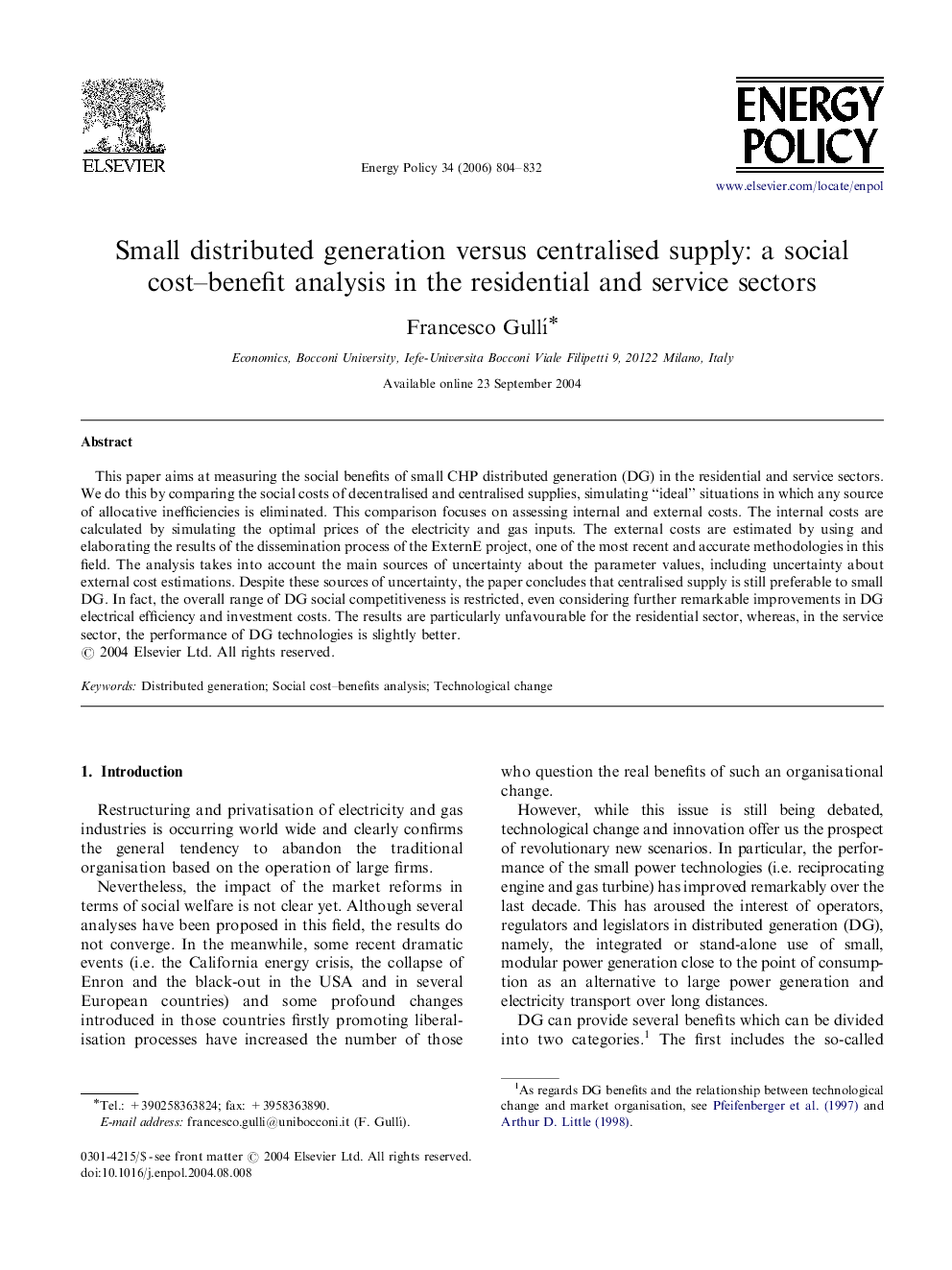| Article ID | Journal | Published Year | Pages | File Type |
|---|---|---|---|---|
| 995422 | Energy Policy | 2006 | 29 Pages |
This paper aims at measuring the social benefits of small CHP distributed generation (DG) in the residential and service sectors. We do this by comparing the social costs of decentralised and centralised supplies, simulating “ideal” situations in which any source of allocative inefficiencies is eliminated. This comparison focuses on assessing internal and external costs. The internal costs are calculated by simulating the optimal prices of the electricity and gas inputs. The external costs are estimated by using and elaborating the results of the dissemination process of the ExternE project, one of the most recent and accurate methodologies in this field. The analysis takes into account the main sources of uncertainty about the parameter values, including uncertainty about external cost estimations. Despite these sources of uncertainty, the paper concludes that centralised supply is still preferable to small DG. In fact, the overall range of DG social competitiveness is restricted, even considering further remarkable improvements in DG electrical efficiency and investment costs. The results are particularly unfavourable for the residential sector, whereas, in the service sector, the performance of DG technologies is slightly better.
